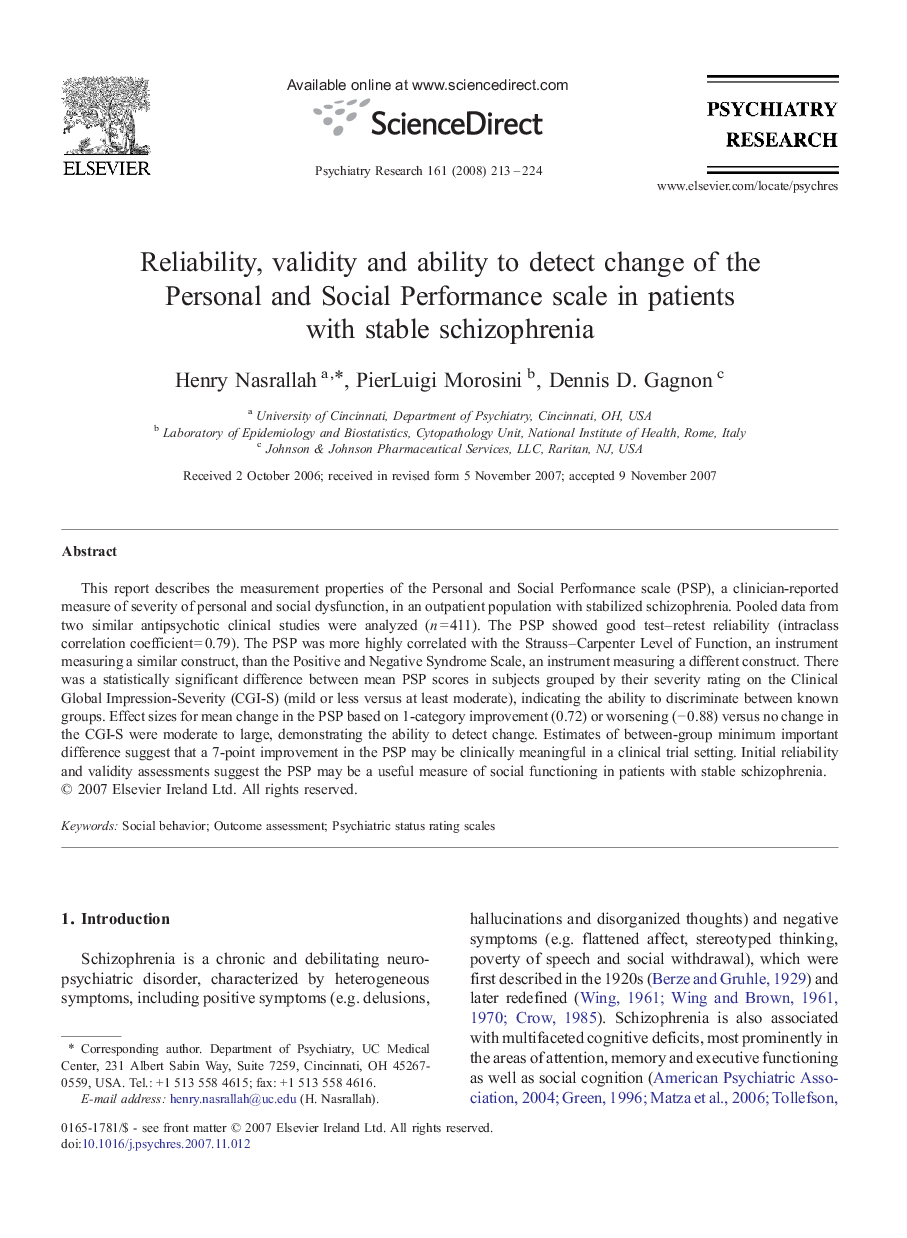| Article ID | Journal | Published Year | Pages | File Type |
|---|---|---|---|---|
| 333958 | Psychiatry Research | 2008 | 12 Pages |
This report describes the measurement properties of the Personal and Social Performance scale (PSP), a clinician-reported measure of severity of personal and social dysfunction, in an outpatient population with stabilized schizophrenia. Pooled data from two similar antipsychotic clinical studies were analyzed (n = 411). The PSP showed good test–retest reliability (intraclass correlation coefficient = 0.79). The PSP was more highly correlated with the Strauss–Carpenter Level of Function, an instrument measuring a similar construct, than the Positive and Negative Syndrome Scale, an instrument measuring a different construct. There was a statistically significant difference between mean PSP scores in subjects grouped by their severity rating on the Clinical Global Impression-Severity (CGI-S) (mild or less versus at least moderate), indicating the ability to discriminate between known groups. Effect sizes for mean change in the PSP based on 1-category improvement (0.72) or worsening (− 0.88) versus no change in the CGI-S were moderate to large, demonstrating the ability to detect change. Estimates of between-group minimum important difference suggest that a 7-point improvement in the PSP may be clinically meaningful in a clinical trial setting. Initial reliability and validity assessments suggest the PSP may be a useful measure of social functioning in patients with stable schizophrenia.
